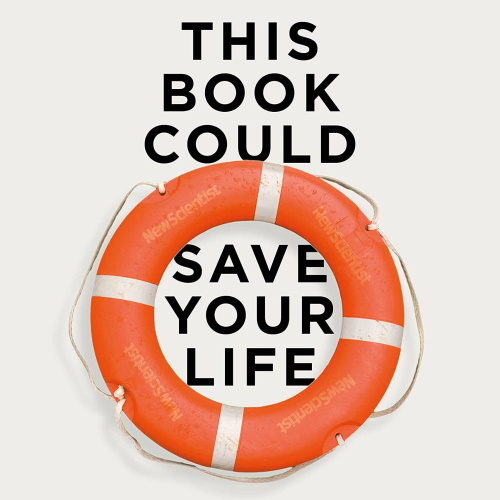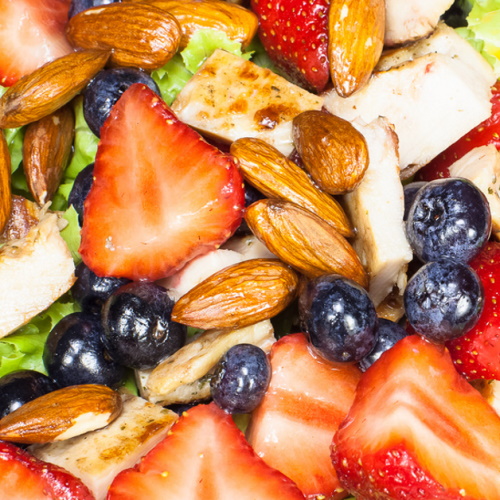This Book Could Save Your Life
A myth-busting, scientifically proven guide to making you live longer and live healthier written by Graham Lawton
You are what you eat. Food and diet have an enormous influence on your health and well-being, but eating the right amount of the right things - and not too much of the wrong things - isn't easy. But, as in most walks of life, knowledge is power. This book will empower you to eat healthily, lose weight, and sort the fads from the science facts. This is the New Scientist take on a "New Year, New You" book: an eye-opening and myth-busting guide to everything from sugar to superfoods, from fasting to eating like a caveman and from veganism to your gut microbiome.
Forget faddy diet books or gimmicky exercise programs, this is what is scientifically proven to make you live longer and to be healthier and happier.
Book review
A super quick review, as basically the book delivers exactly what the blurb describes - and more, as it covers exercise and sleep as well as diet. Unsurprisingly from a New Scientist reporter, all of the topics are well researched and it's an easy read for anyone new to the subject. It has a comprehensive index to look up your favourite subject as it may not always be obvious from the chapter titles where to look. And any book with a chapter asking "can I live forever?" is always going to get a bonus point!
Key Points
Here are highlights from the book.
The Truth About Food
- UK advice on saturated fats is no more than 10 per cent of total calories
- saturated fats have been shown to raise LDL cholesterol levels the most
- but no significant evidence that saturated fat raises the risk of heart disease
- the only safe amount of trans fat in the diet is zero
- possible that the benefits of switching away from saturated fat are cancelled out by replacing them with sugar and trans fats
- Omega-3 is probably the only nutrient deficiency that is common in the West
- changes in farming methods are making some fish lower in omega-3s
- one portion of plain white rice raises your blood sugar by about as much as ten teaspoons of white table sugar
- the more complex the carb the slower it will release its sugars
- acrylamide is converted in the body into glycidamide which can bind to DNA and cause mutations
- sugar is an entirely dispensable food
- fructose isn’t regulated by insulin
- benefits of a fruit-rich diet outweigh any dangers from fructose
- WHO’s advice is to consume less than 5 per cent of your calories in the form of free sugar
- it is possible to survive perfectly well on very little salt
- may several weeks of salt withdrawal for taste preferences to return to normal
- clear relationship between a salty diet and cardiovascular disease
- both extremes of salt intake are associated with an increase in mortality
- roughly a year off life expectancy for a forty-year-old man who eats a burger a day
- little indication that white meats, or fish, are a health concern of any sort
- drinking too much milk might weaken your bones
- increased risk of fractures and mortality is not seen in people who eat a lot of fermented milk products (e.g. yoghurt, cheese)
- lots of fruit and veg lower the risk of heart disease and probably cancers
- unprocessed frozen fruits and vegetables are almost as good as fresh ones
- ideal intake is ten portions a day
- long-term studies to support most claims of "superfoods" are thin on the ground.
- best to eat a wide range of brassicas rather than just kale
- of the roughly one million papers that have been published in nutrition, just a few hundred are of the highest scientific quality - but one small and flawed study that goes against the prevailing wisdom will make headlines
- alkaline diet is total, absolute and utter nonsense
The Truth About Diets and Weightloss
- current evidence does not support a clear effect of regularly consuming or skipping breakfast
- 16:8 fast gives you a full six hours of autophagy
- for seniors a high-protein diet is required to maintain muscle mass
- no scientific evidence that detox diets rid us of anything other than money
- just over 1 per cent of Britons never eat meat or animal products
- protein is abundant in pulses, seeds, quinoa and tofu
- B12 deficiency is a risk for vegetarians and vegans
- long- term consequences of cutting out FODMAPs remain unclear
- experts say you can train yourself to increase a naturally low satiety response
The Truth About Vitamins and Supplements
- around a dozen essential vitamins must be present in the diet because the human metabolism cannot make them
- safe for human consumption doesn’t necessarily mean safe for long-term human consumption
- are you really qualified to decide that you are deficient in some nutrient?
- some vitamins have been shown to interfere with drugs, such as warfarin
- the eight B vitamins are chemically distinct and have quite different functions
- antioxidant supplements do not increase lifespan, and some (beta carotene and vitamins A and E) actually decrease it
The Truth About Drink (and Drugs)
- healthy people adequately meet their daily hydration needs by letting thirst be their guide
- minerals in some bottled waters, especially sodium, can be harmful
- the more coffee people drink the less likely they are to drop dead of any cause
- evidence was patchy and contradictory for tea
- no scientific evidence that drinking urine is good for you
- official advice now errs on the side of abstention from alcohol
- alcohol is responsible for 12 per cent of deaths in males aged fifteen to forty-nine
- too early to say what the long-term health effects of vaping and heated tobacco products (HTPs) are
The Truth About Exercise
- exercise gets blood coursing through the circulatory system, which flushes out fatty deposits in the walls of blood vessels
- walk around the sofa every time there’s a natural break in whatever you’re watching, reading or doing
- optimum dose of exercise is two hours of brisk walking a day.
- four-minute HIT workouts done four days a week, brought greater improvements in aerobic fitness than an hour’s normal workout done five days a week
- aerobic fitness and strength make independent contributions to health
- normal activity (fidgeting included) makes up the lion’s share of your daily energy expenditure
- people who view ageing positively even before it affects them live seven and a half years longer than those who associate it with frailty and senility
The Truth About Staying Well
- men usually die with prostate cancer rather than of it
- the immune system weakens with age
- persistent background inflammation causes heart disease, type 2 diabetes and neurodegenerative disease
- need to spend two hours a week in nature to reap its benefits
- air doesn’t have to look toxic to be toxic
- PM2.5 exposure is associated with an increase in heart attacks and lung cancer
- nitrogen oxides (NOX) and PM2.5s from cars fall exponentially with distance from the exhaust pipe
- in the UK, more than nine million adults report being lonely often or always
- Lonely people are at increased risk of just about every major chronic illness
- the biggest longevity boost comes from marriage or an equivalent life partner relationship
- people with high sun exposures have higher life expectancies, on average, than sun avoiders
The Truth About Sleep
- you shouldn’t need an alarm clock to wake you in the morning
- association between excess sleep and mortality is at least as strong as for sleep deprivation
- lack of sleep across your lifespan will significantly raise your risk of Alzheimer’s disease
- sleeping pills are associated with higher rates of mortality and cancer
- a ten- minute nano-nap can boost alertness, concentration and attention
- people who regularly don’t get enough sleep die younger
- people get more bright light during the day fall asleep faster at night and sleep for longer
- only larger devices produce enough bluish-white light to affect levels of melatonin
Can I Live For Ever?
- late-life morbidity is the price we pay for our modern lifestyles
- almost every chronic disease suddenly increases exponentially around the age of sixty
- optimism improves the prospects of patients with heart conditions and infectious diseases
Visit website: https://shop.newscientist.com/products/this-book-could-save-your-life-the-science-of-living-longer-better?variant=31640435785825
Details last updated 24-Nov-2022





